Picking the right fabrics for shirts can make or break your entire wardrobe. Think about it – you wear shirts almost every day, so the material needs to feel good on your skin, look decent after washing, and hold up over time.
Everything depends on the fabrics for shirts you select. Cotton may be soft and breathable yet, easily wrinkled. Polyester is easy to handle, as it does not require ironing, yet may be plastic-y during thermal season. Blends try to give you the best of both worlds, but they come with their own trade-offs.
At Innovate Apparel, we see customers struggle with this choice all the time. Some want shirts that last forever. Others care more about comfort. Many just want something that looks good without tons of maintenance.
This guide breaks down everything you need to know about fabrics for shirts. We’ll cover how much does a shirt weigh, explore different types of shirt material, and help you figure out what works best for your lifestyle. No confusing terms or sales talk – just straight answers to help you make smart choices.
What is a Quality Fabric for Shirts?
Fabric is basically the foundation of any shirt. It’s what touches your skin, holds the shape, and determines how long your shirt will last. Good fabrics for shirts are not only a matter of high prices – it is a matter of being able to match the way you live.
There are five things that make fabric good or bad: how well it lets air pass through (breathable), how it feels on your body (texture), whether this fabric wearing out after a couple of washes (durability), how heavy it is or how light it is resting on the body (weight), and how hard it is to make it look good (easy care). When these are correct, you will have shirts that are working with you rather than against you.
Common Types of Fabrics for Shirts
Cotton
Cotton is the most popular choice for fabrics for shirts, and for good reason. It comes from cotton plants, and it becomes softer every time it is washed. There are various variations, such as combed cotton (very smooth), organic cotton (chemical-free cotton), and Egyptian cotton (longer fibers, which are luxurious). The majority of the population goes crazy about cotton as it is breathable and natural against your skin.
Pros:
- Breathable and comfortable in most weather
- Gets softer over time
- Easy to wash and care for
- Absorbs sweat well
Cons:
- Wrinkles easily
- Can shrink if you’re not careful
- Takes longer to dry than synthetic fabrics
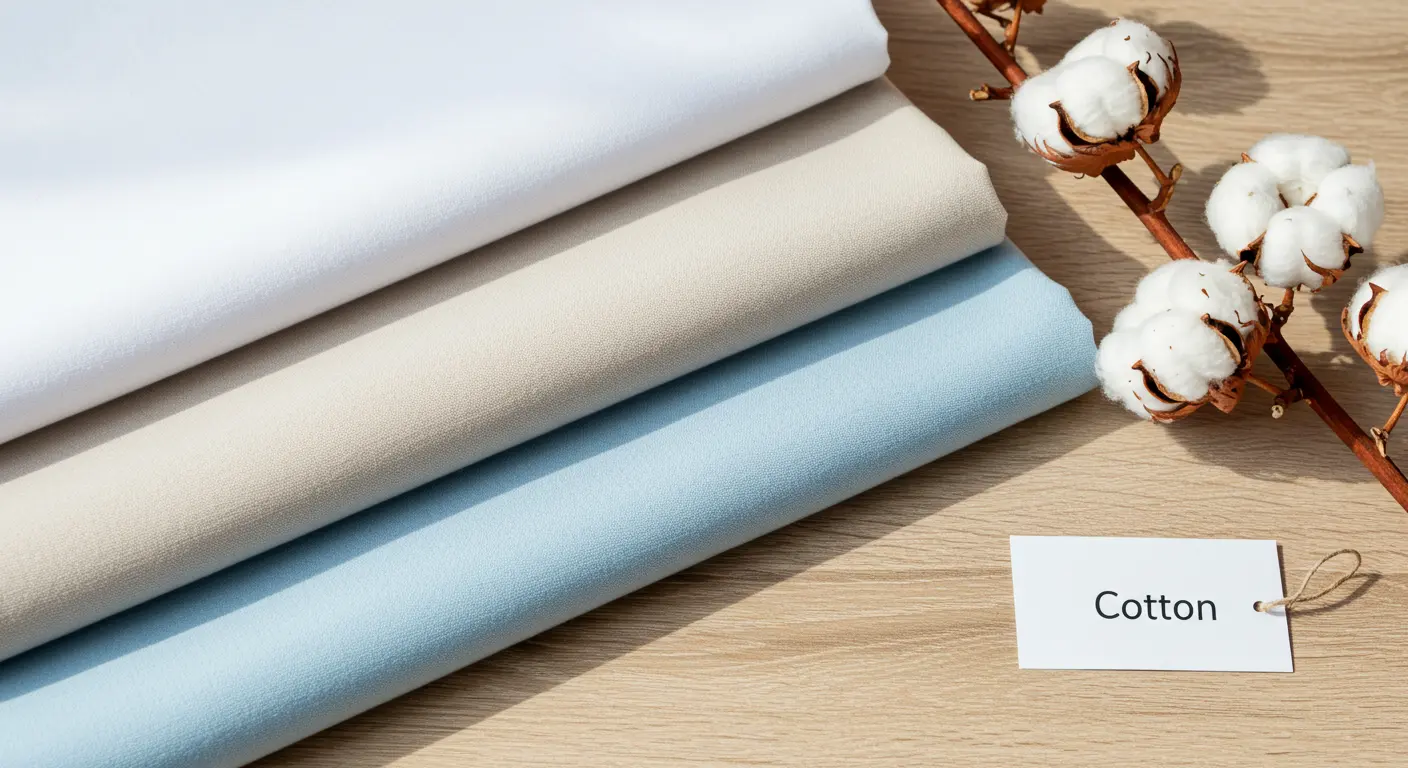
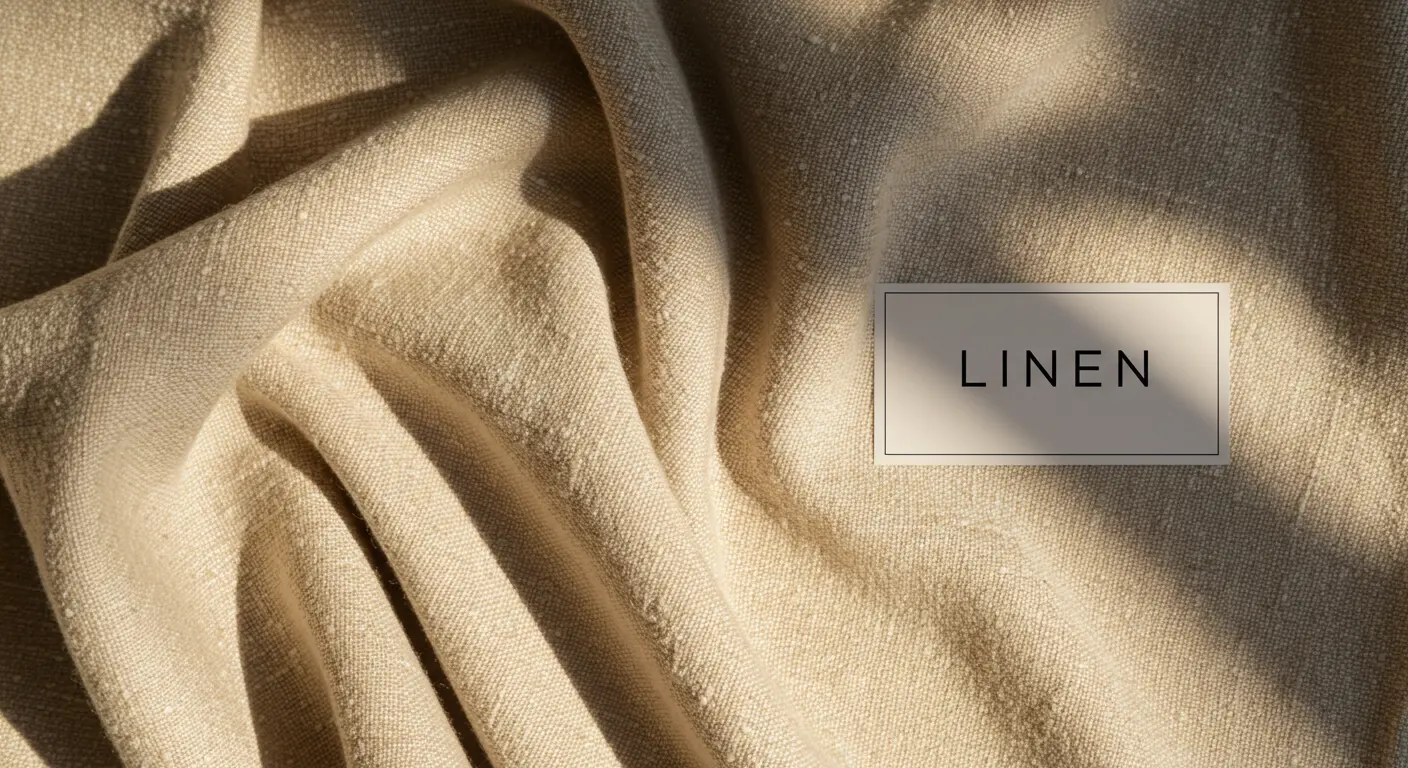
Linen
Linen is a fabric produced by flax plants and is most likely the most breathable fabrics for shirts you will ever come across. It is ideal in summer when you require something to circulate through your shirt. The material is loosely woven and allows heat to be lost, so it becomes a favorite material to wear during beach holidays and outside parties. However, do not hope that it will not appear crunchy after some time.
Pros:
- Super breathable and cool
- Gets better with age
- Strong and long-lasting
- Natural and eco-friendly
Cons:
- Wrinkles like crazy
- Can look messy quickly
- More expensive than cotton
- Feels rough at first
Polyester
It is a synthetic fiber (polyester), appearing everywhere as it is very cheap and convenient. It is composed of plastic threads that are intertwined in a way that results in fibers forming a fabric that does not easily wrinkle. A lot of sports shirts are made of polyester since they wick the sweat material off your body. Although it may not seem as natural as cotton, these fabrics for shirts are perfect in case you are someone who hates ironing.
Pros:
- Almost never wrinkles
- Dries super fast
- Keeps its shape after washing
- Usually the cheapest option
Cons:
- Can feel plastic-y or sticky
- Holds onto smells more than cotton
- Not as breathable in hot weather
- Can create static
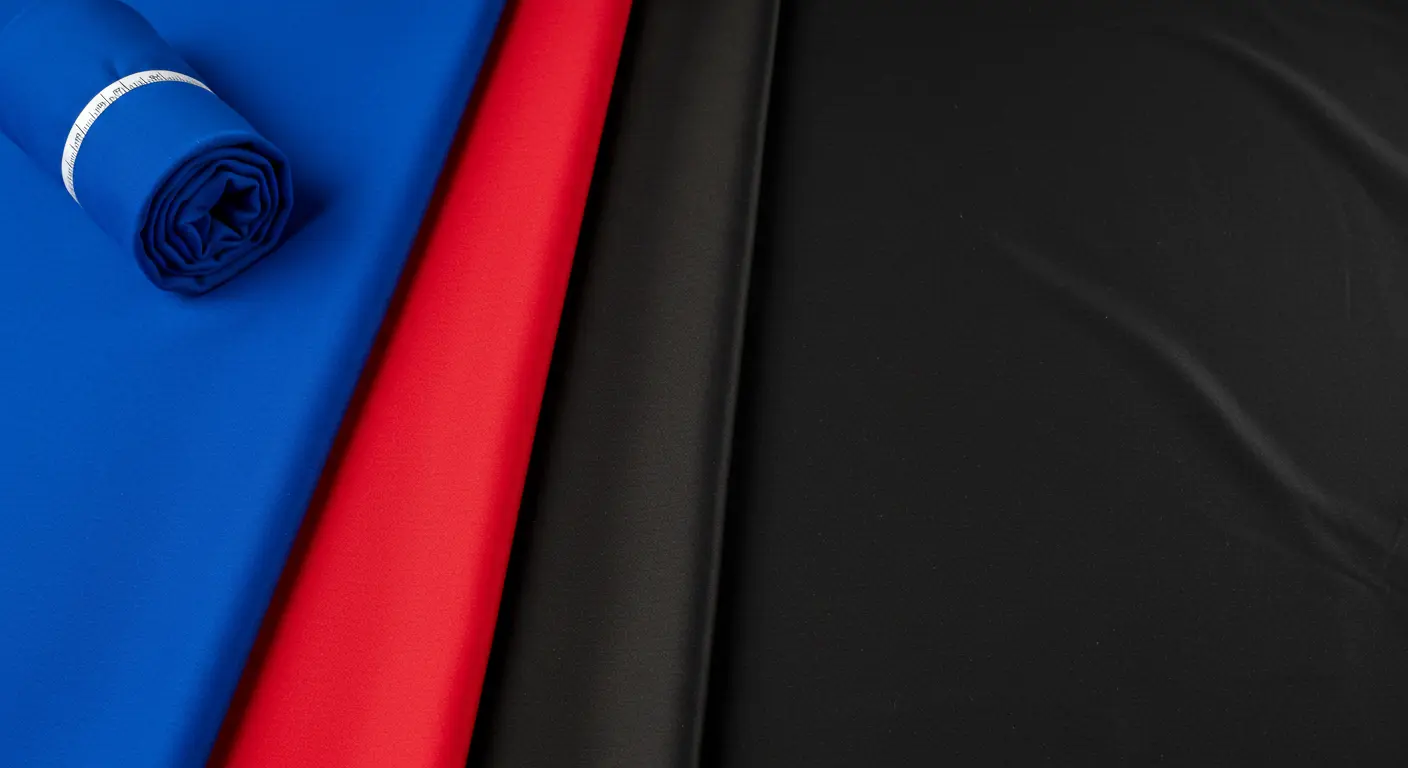
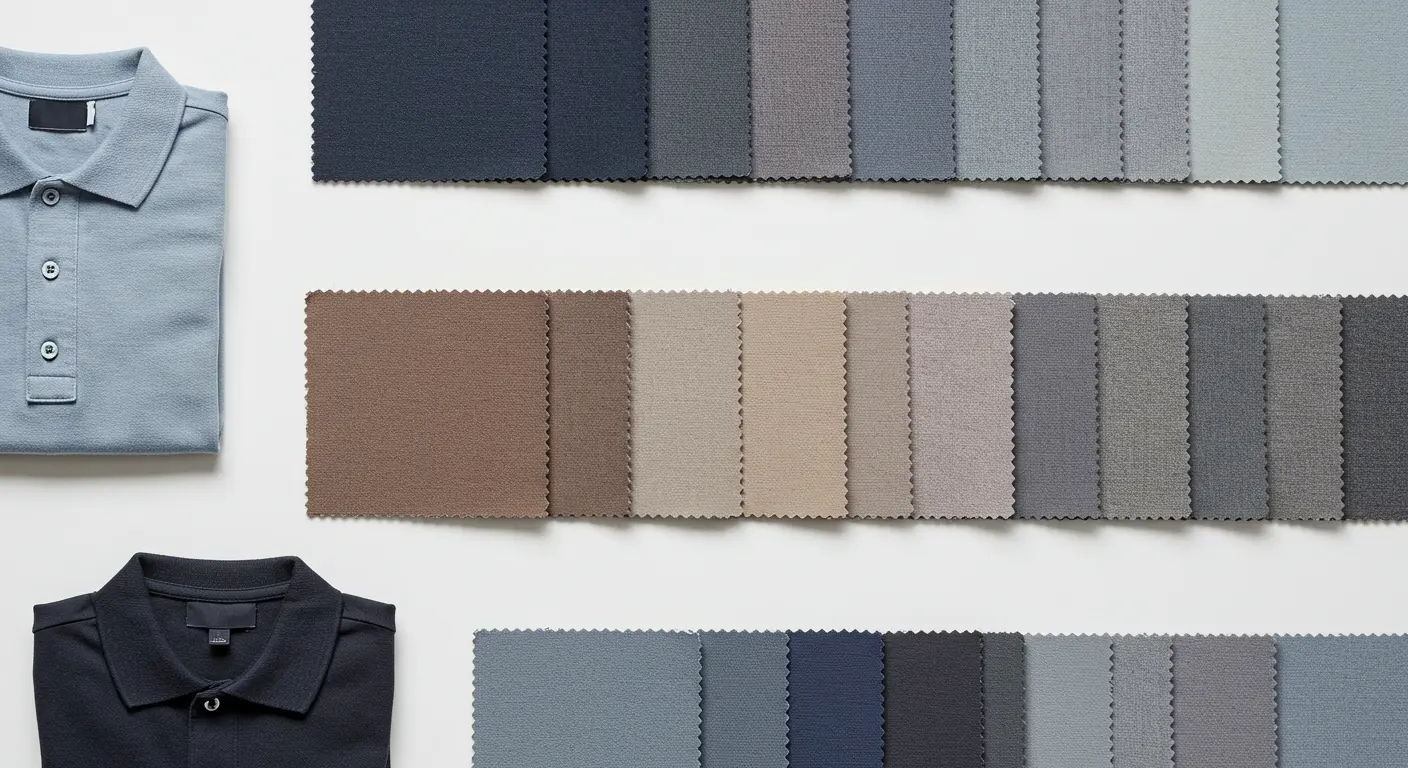
Blends
Fabric blends mix two or more materials to get the best of both worlds. Cotton-polyester blends are the most common – you get cotton’s comfort with polyester’s easy care. Cotton-spandex blends add stretch, which is great for fitted shirts. These fabrics for shirts try to solve the problems that pure fabrics have.
Pros:
- Combines benefits of different fabrics
- Usually easier to care for than pure cotton
- Often more affordable than premium fabrics
- Can add stretch and flexibility
Cons:
- Might not feel as premium as pure fabrics
- Can pill over time
- Sometimes compromises the best qualities of each fabric
- Harder to recycle
Silk
Silk comes from silkworms and feels incredibly smooth against your skin. It’s been a luxury fabric for thousands of years. Silk fabrics for shirts work for both formal events and casual wear, depending on how they’re made. The fabric naturally adjusts to temperature, keeping you cool in summer and warm in winter.
Pros:
- Feels amazing and looks elegant
- Natural temperature control
- Strong despite feeling delicate
- Naturally resistant to odors
Cons:
- Expensive and needs special care
- Can stain easily
- Wrinkles and needs gentle handling
- Not great for everyday wear
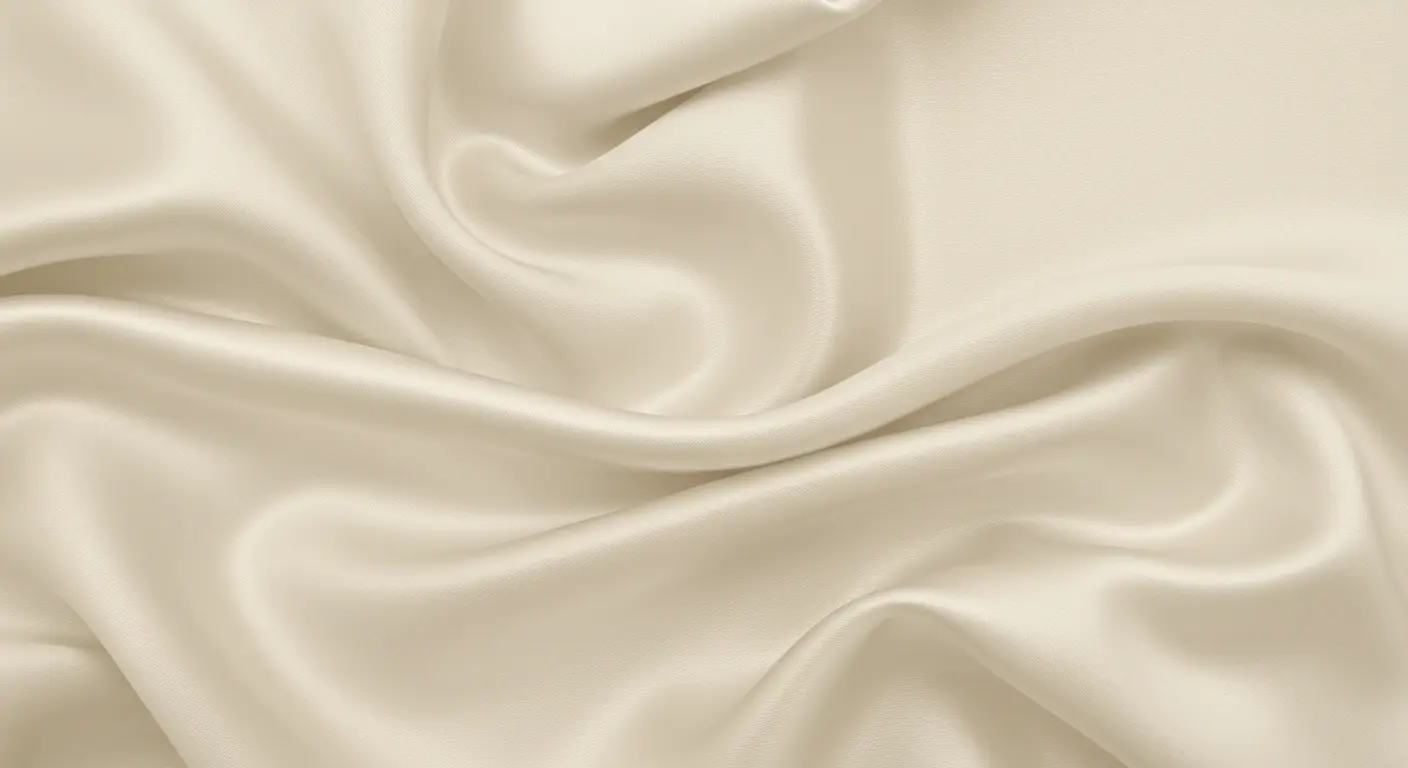
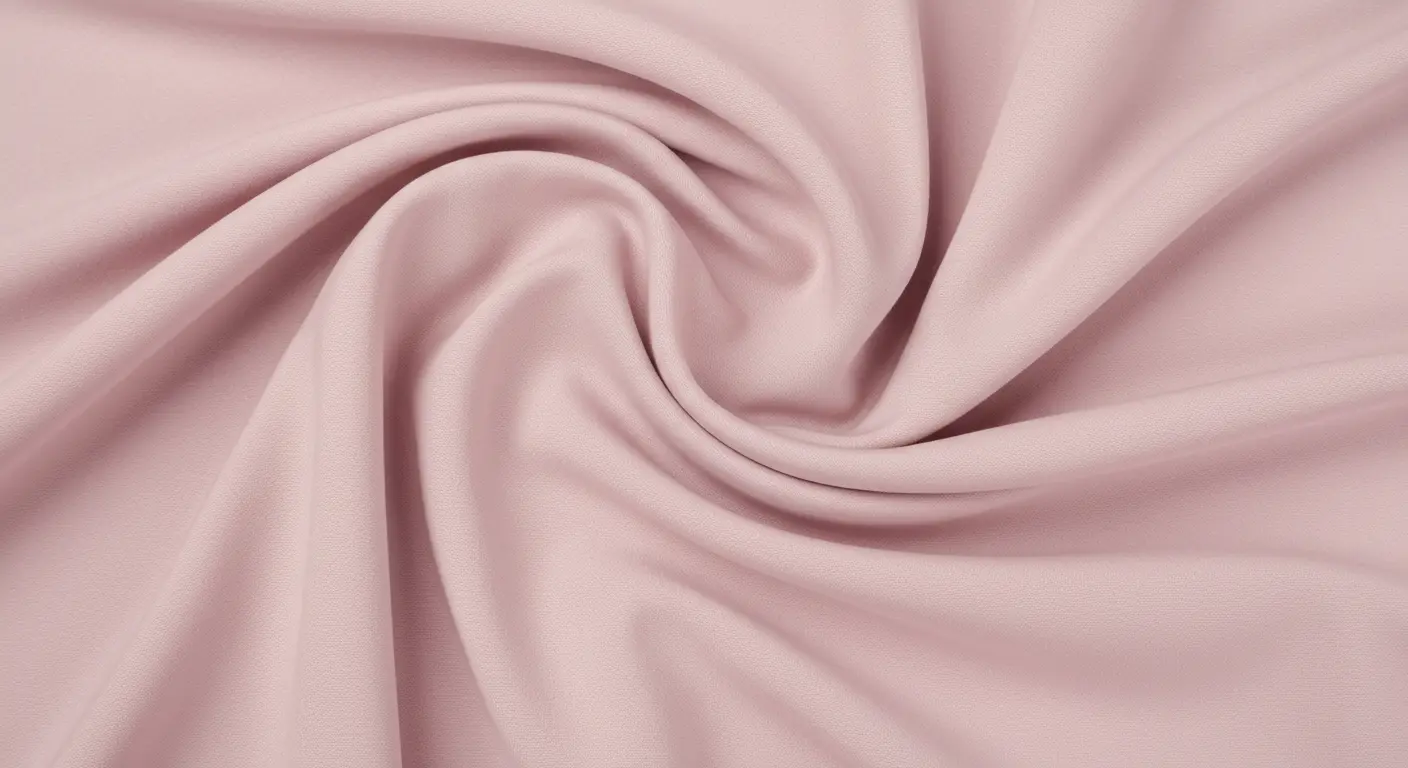
Rayon/Viscose
Rayon is made from wood pulp but feels similar to silk or cotton. It drapes nicely and has a soft, smooth texture that many people love. Viscose is just another name for rayon. It’s a good middle ground between natural and synthetic fabrics – cheaper than silk but more elegant than polyester.
Pros:
- Soft and comfortable
- Drapes beautifully
- Absorbs dye well for rich colors
- More affordable than silk
Cons:
- Can shrink or stretch when wet
- Wrinkles easily
- Not as durable as cotton or polyester
- Needs careful washing
Flannel
Flannel is cotton that’s been brushed to create a soft, fuzzy surface. It’s basically cotton’s cozy cousin. Most flannel shirts are perfect for fall and winter because they trap warm air close to your body. The brushed surface of these fabrics for shirts makes it one of the softest types of material you can find.
Pros:
- Super soft and cozy
- Great for cold weather
- Casual and comfortable
- Gets softer with washing
Cons:
- Too warm for summer
- Can pill with heavy use
- Takes longer to dry than regular cotton
- More casual look only
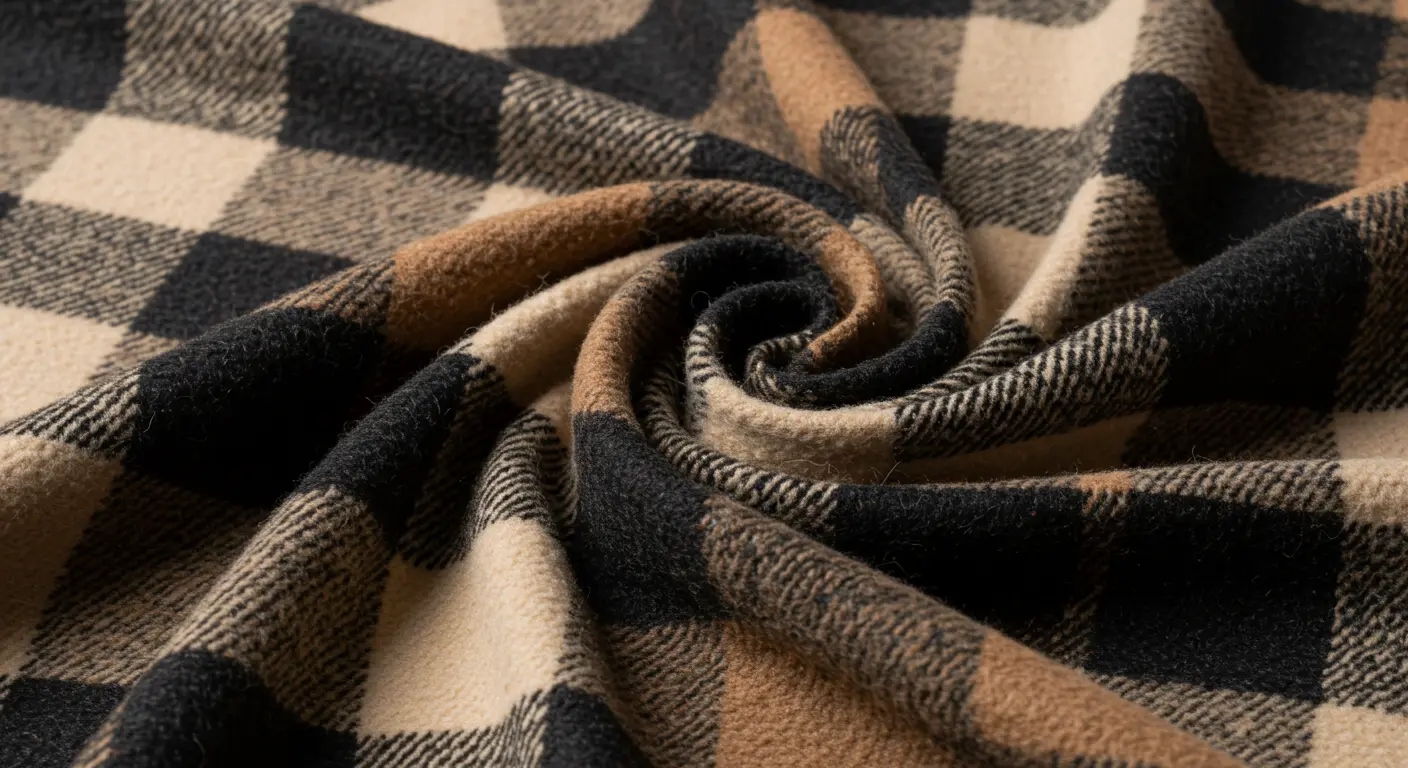
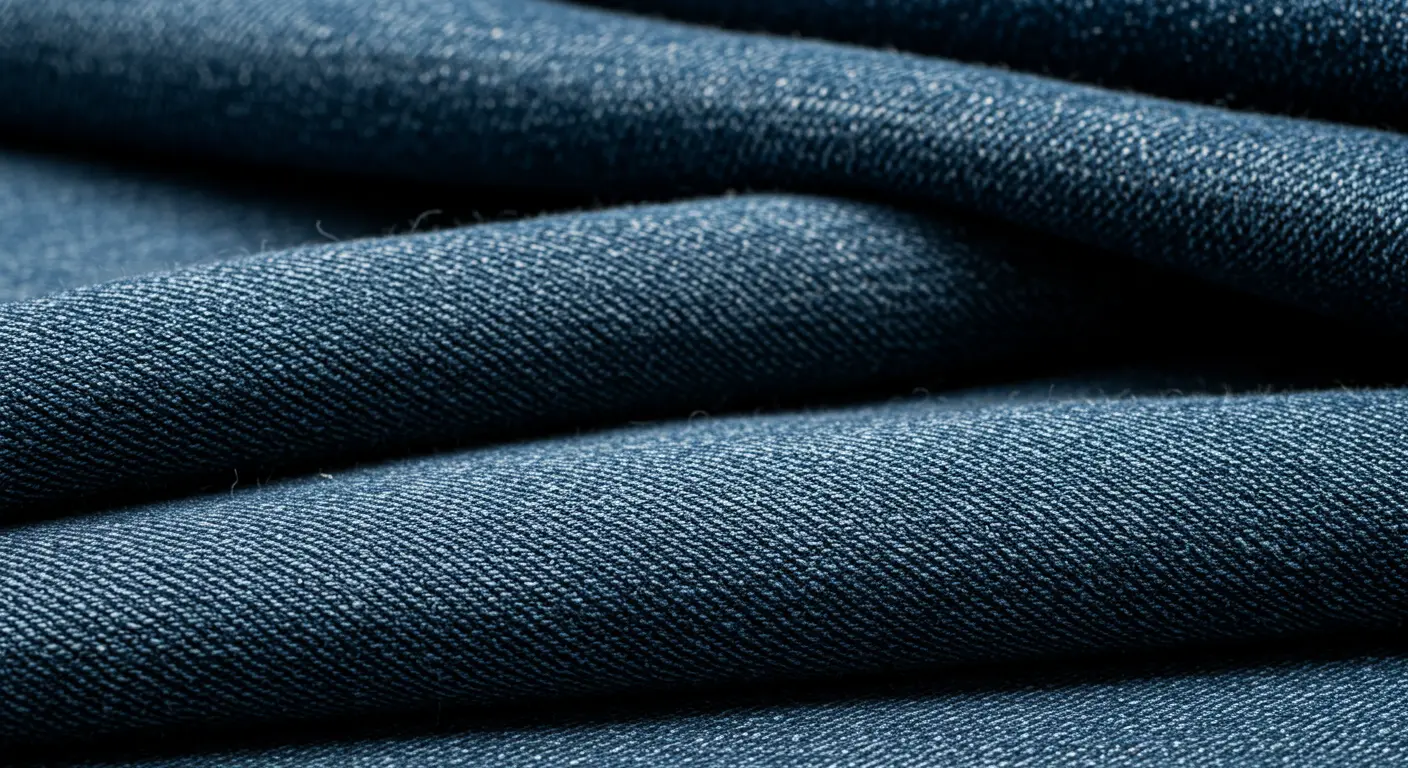
Denim & Chambray
Denim is thick, sturdy cotton fabric that’s been around forever. Chambray looks similar but is much lighter and softer. Both are casual fabrics for shirts that work well with jeans or shorts. Denim shirts are tougher, while chambray shirts feel more like regular cotton but with a cool, laid-back look.
Pros:
- Very durable and long-lasting
- Classic, timeless style
- Easy to match with other clothes
- Gets better with age and wear
Cons:
- Can be stiff when new
- Limited to casual occasions
- Denim can be heavy and warm
- Takes time to break in
Choosing the Right Fabrics for Shirts
Casual Shirts
To hang out every day, you want fabrics for shirts that are comfortable and do not require coddling. Cotton and cotton blends are the best options since they are soft, breathable, and will withstand frequent washing. Flannel is best to wear on a chillier day, and chambray makes you feel relaxed. Avoid anything that requires dry cleaning or unusual care – casual shirts must simplify things and not complicate them.
Formalwear
Silk and cotton are your best allies when you have to appear at your finest. The appearance of these fabrics is very formal and captures well on the camera, and even on the wedding occasions, sophisticated dinners, and black-tie occasions. It should be weighty but not heavy; you want to ensure that you get fabric that hangs well and is moved with you without appearing flimsy or informal.
Work Uniforms
The most important thing here is durability and ease of care. Cotton-polyester mixtures are ideal as they are frequently washable, do not crease easily, and are durable since they can last all day. There are also some offices which require certain qualities, such as stain-resistance or moisture-dew, which means that polyester could be the way to go. You should have fabrics for shirts that are durable to all that your job is subjecting them to.
Athletic or Performance Shirts
For working out or sports, you need fabrics for shirts that move sweat away from your body fast. Polyester and polyester blends are designed for this – they’re lightweight, dry quickly, and don’t get heavy when wet. Others have special treatments, which kill odors or give UV coverage. Cotton looks good but remains moist and heavy and that is not good when you are on the move.
Fabric Finishes & Treatments
Modern fabrics for shirts often come with special treatments that make them work better. Wrinkle-resistant finishes use chemicals to help fabric bounce back to its original shape, so you spend less time ironing. Moisture-wicking treatments pull sweat away from your skin to the fabric’s surface where it dries faster. Pre-shrunk means the fabric was washed and dried before making your shirt, so it won’t surprise you by getting smaller after the first wash. Stretch finishes add flexibility to cotton or other natural fabrics, making shirts more comfortable and easier to move in without losing their shape.
Tips for Online Buyers
- Read shirt descriptions carefully – fabric type, blend percentages, and fabric weight.
- Check size charts since different fabrics for shirts fit differently.
- Look for photos showing texture and drape, not just flat product shots.
- Read reviews that mention how the fabric feels, washes, and holds up over time.
- Compare prices based on fabric quality – higher thread count cotton costs more.
- Avoid stores with no fabric information or vague descriptions like “premium blend”.
- Look for return policies since you can’t feel the fabric before buying.
- Check if the brand mentions fabric treatments like pre-shrinking or wrinkle resistance.
- Pay attention to care instructions – they tell you a lot about fabric quality.
- Trust brands that show fabric certifications or detailed manufacturing info.
A Good Decision for Your Fabric
Choosing the right fabrics for shirts comes down to matching what your customers actually need with what you’re offering. A heavy weight tee works great for someone who wants durability, while a lightweight cotton blend might be perfect for everyday comfort. The key is being honest about what each fabric does well and what it doesn’t.
At Innovate Apparel, we’ve learned that customers appreciate straight talk about fabric choices. Don’t oversell cotton as perfect for everyone, and don’t dismiss polyester as cheap garbage. Each fabric has its place. Put them out to play, pay attention to comments and change with what they talk about comfort, durability and care.
The best approach is to test fabrics yourself and get real customer opinions. Theoretical results are not always practical, and satisfaction of the customer always trumps technical specifications.
FAQs for Best Fabrics for Shirts
What's the best fabric for sweat-resistant shirts?
Polyester and polyester blends are your best bet. They move moisture away from your skin and dry fast. Cotton absorbs sweat but stays wet longer, which isn’t great if you sweat a lot.
Is 100% cotton the best for a shirt?
- Not always. Pure cotton feels great and breathes well, but it wrinkles easily and can shrink. Cotton blends often work better for people who want easy care. It depends on what matters more to you – pure natural feel or practical maintenance.
Are 100% polyester t-shirts good?
- They’re excellent for specific situations like working out, traveling, or if you hate ironing. But they can feel less comfortable than cotton in hot weather and might hold onto odors more. They’re good, just different from natural fabrics.
What fabric is wrinkle-free for travel shirts?
Polyester or cotton-polyester blends work best for travel. They bounce back from being stuffed in luggage and don’t need ironing. Some treated cotton fabrics are also wrinkle-resistant, but synthetic blends are usually your safest bet for wrinkle-free travel.
